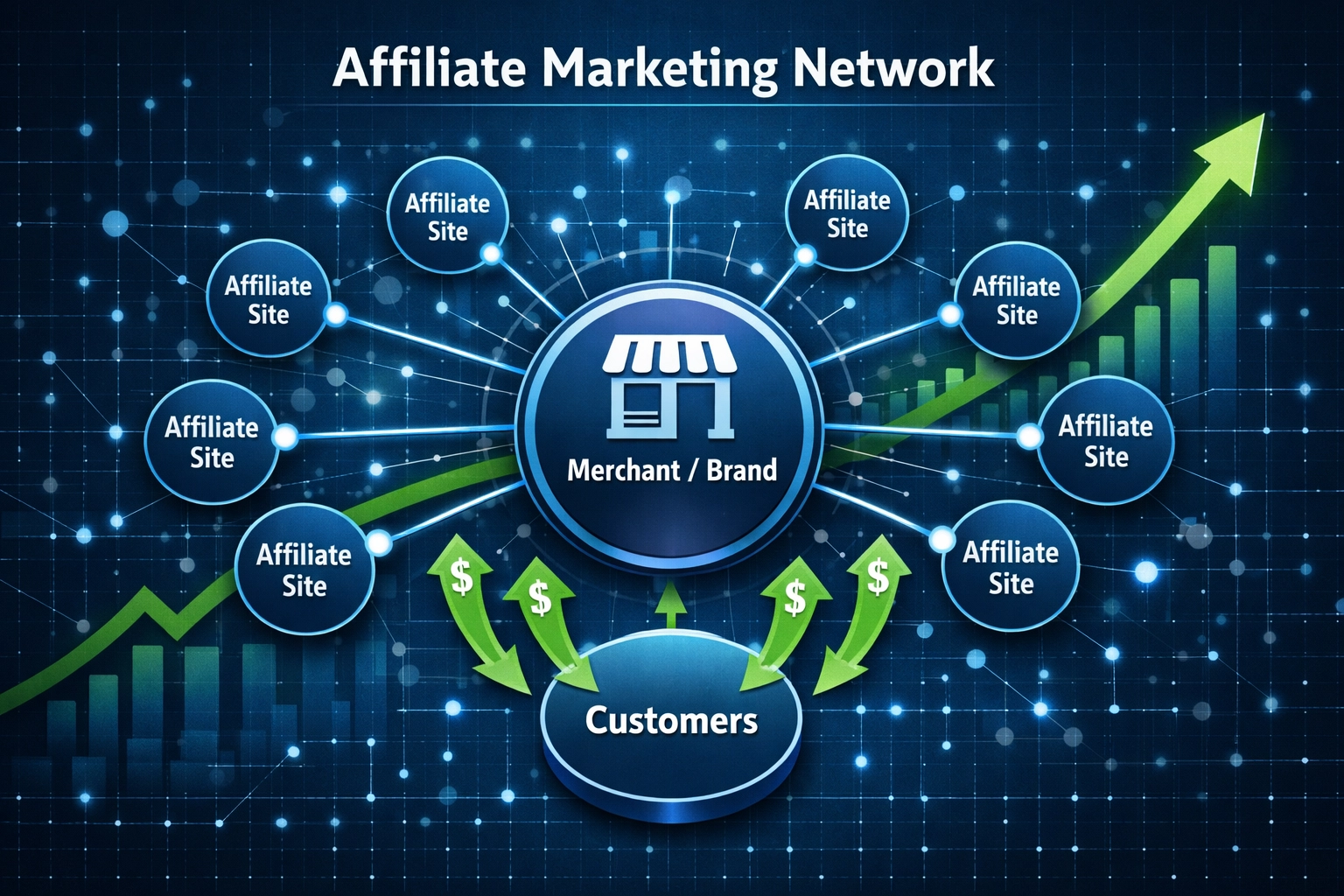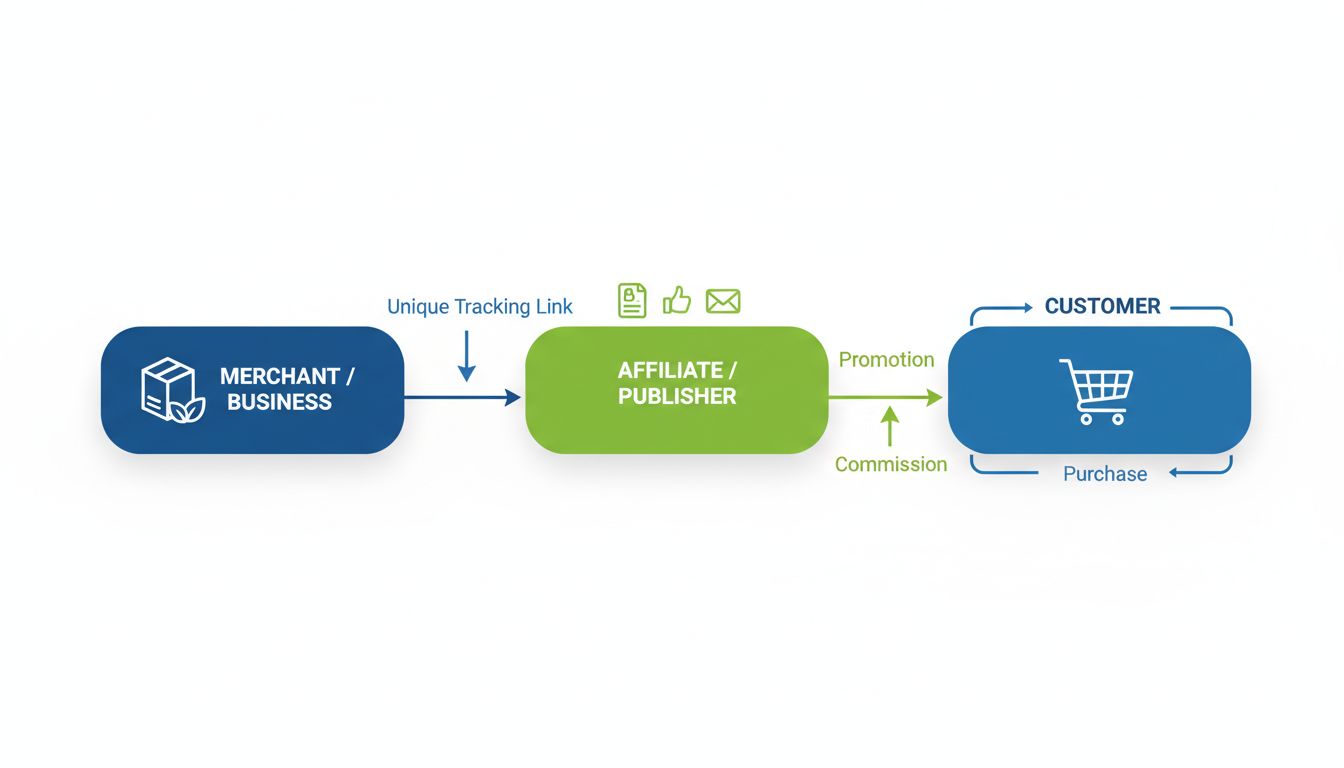
What is an Affiliate Marketing Program
Learn how affiliate marketing programs work, their benefits for merchants and affiliates, and how to get started with performance-based marketing in 2026.
An affiliate program is a performance-based marketing strategy where businesses partner with affiliates who promote their products or services in exchange for commissions.
An affiliate program is a strategic marketing initiative where businesses collaborate with individuals or other organizations, known as affiliates, who promote their products or services. Affiliates earn commissions based on their ability to drive traffic or sales to the business through unique affiliate links . This commission-based system motivates affiliates to generate leads or sales by leveraging their own platforms such as blogs, social media channels, or websites to engage their audience.
Affiliate programs are a significant part of the performance marketing landscape. They operate on the principle that affiliates are only compensated when they succeed in driving a measurable action, such as a sale, a lead, or a specific engagement metric. This model is particularly appealing to businesses as it minimizes risk and ensures marketing budgets are directly tied to performance outcomes.
Affiliates seamlessly integrate the merchant’s products into their content, which could include blog posts, videos, or social media posts. When a consumer clicks through an affiliate link and completes a purchase, the affiliate earns a commission. This model is performance-based, meaning businesses compensate affiliates based on actual sales or leads generated, rather than upfront advertising costs. This approach aligns the interests of both the merchant and the affiliate, as both parties benefit directly from increased sales.
Building a successful affiliate program involves several strategic steps to ensure it effectively attracts and retains affiliates while driving sales and enhancing brand awareness.
An affiliate program is a marketing initiative where businesses collaborate with affiliates who promote their products or services and earn commissions based on traffic or sales generated.
Affiliates use unique links to promote a business’s products. They earn commissions when their referrals result in sales or leads, making it a performance-based model.
To build an affiliate program, set clear goals, choose suitable products, decide on commission structures, select an affiliate platform, create policies, recruit affiliates, provide marketing materials, and continually track and optimize performance.
Unlock powerful affiliate marketing tools and grow your business with Post Affiliate Pro’s all-in-one platform.

Learn how affiliate marketing programs work, their benefits for merchants and affiliates, and how to get started with performance-based marketing in 2026.

Learn what affiliate marketing programs are, how they work, and why they're essential for business growth. Discover commission structures, benefits, and best pr...
An Affiliate is a person or company that promotes another company's products or services to earn commissions. Learn how affiliate marketing works, its benefits,...
Cookie Consent
We use cookies to enhance your browsing experience and analyze our traffic. See our privacy policy.